- Home
- JoAnn Ross
A Place in Time (Rum Runner Island Book 1)
A Place in Time (Rum Runner Island Book 1) Read online
a place
in time
JoAnn Ross
Copyright © 2016 by Castlelough Publishing, LLC
Kindle Edition
This is a work of fiction. The characters in this book have no existence outside the imagination of the author and have no relation to anyone bearing the same name or names. All incidents are pure invention and any resemblance to actual persons, events, or locales is entirely coincidental.
Table of Contents
Title Page
Copyright Page
About the Book
Chapter 1
Chapter 2
Chapter 3
Chapter 4
Chapter 5
Chapter 6
Chapter 7
Chapter 8
Chapter 9
Chapter 10
Chapter 11
Chapter 12
Chapter 13
Chapter 14
Chapter 15
Chapter 16
Chapter 17
Chapter 18
Chapter 19
Chapter 20
Chapter 21
Chapter 22
Chapter 23
Chapter 24
Chapter 25
Excerpt from Somewhere in Time
About Finn
Other Books from JoAnn Ross
About The Author
Rum Runner Island…Where love is timeless.
Truth is reason. Reason is truth. All else is irrational.
Space traveling astrophysicist Sebastian Blackthorne has lived by that dictate his entire life. Until he lands in the wrong place and the wrong century. But with the right woman, who has him questioning everything he’s ever believed in.
When Rum Runner Island police chief Kirby Pendleton finds a nearly naked, unconscious man lying in a snowdrift during a blizzard, she’s startled to realize that he’s the hottie she’s been fantasizing about. Impossibly, it’s as if her thoughts had reached out and pulled him right out of the blue.
While their romance may have been destined by the stars, other lives depend on Sebastian returning to his own planet in the future. Yet having fallen deeply into a love for all time, how can he possibly leave Kirby behind?
1
The planet Logosia.
Moon date: Omega 23.7
There was no turning back.
After studying the holodiscs in the secret government archives, after charting and recharting his destination, after spending five long solar revolutions designing and constructing his transporter, Logosian astrophysicist and hopeful intergalactic explorer Sebastian Blackthorne was on his way.
Lights—red, green, yellow, and blue, flashed. The lights were a medley of wavelengths, surrounding him, radiating in all directions. His body felt as if it were being stung by a hundred, a thousand angry nitrowasps.
Employing the centuries-old meditation techniques the Ancient Ones had brought with them from the planet Janos on Stratum Eleven, Sebastian focused his thoughts, directing his mind to his destination: the planet Earth in the Milky Way galaxy.
Sebastian had chosen Earth because its atmosphere and gravitational pull were remarkably similar to that of Logosia. Also, although he’d been a child at the time, he could remember in vivid detail the excursion he’d taken with his parents and sister in the family spacecraft.
The occasion had been the quadricentennial of his mother’s homeland, and although four hundred years of a nation’s existence was a mere blink of an eyelash to a Logosian, the Americans, his mother included, had considered it quite an accomplishment.
Sebastian had chosen California for his destination because he remembered the western state in North America to be a harmonious and eclectic location. Venice, specifically, he recalled, was a place where a stranger’s sudden appearance amidst the amazingly diverse mix of natives would not cause alarm.
There was another reason he’d chosen Earth as his destination. A highly inappropriate, vastly un-Logosian, particularly human, emotional reason.
This trip was a personal pilgrimage to the planet of his mother’s birth. And although hope was heretically anti-reason and entirely irrational—therefore diametrically opposed to every aspect of Logosian philosophy—in some deep, secret place inside his heart, Sebastian hoped that somehow, by understanding the planet his mother had willingly left behind but had never forgotten, he might come to better understand himself.
In preparation for his journey, his mother had told him everything about her planet that she could remember. Unfortunately, with the exception of that one visit, Mia Vardanyian had been away from her home for more than forty years. Sebastian needed more detailed, up-to-date information than she could provide.
Although it was technically against confederation regulations, Logosian government officials had found an arcane loophole in the inter-galaxy treaty and placed, out of sensor range, intelligence satellites whose cloaking devices had allowed them to go unnoticed around Earth. For more than two hundred solar revolutions, the satellites had been beaming back pictures and audio tapes of the planet.
Scores of clerks—females, whose duty it was to handle the mundane, mindless tasks that were the hallmark of government bureaucracies throughout the universe—transferred the electronic data onto holodiscs, which were filed away in the government archives.
Sebastian’s younger sister, Rosalyn, a highly placed government xenoanthropologist and the sole female professor at the Logosian Science Institute, had originally professed grave doubts about both Sebastian’s theory and his motive.
When she couldn’t convince him to give up his perilous plan, Rosalyn relented and, risking her own career, provided him with classified government datachips far more detailed than the holofiles he’d been permitted to check out from the Logosian National Library.
This wealth of information enabled Sebastian to learn the language and customs of the place called California.
And now, utilizing his unproven theory of molecular astro-projection, Sebastian intended to be the first intergalactic traveler without the encumbrance—and protection—of a space vehicle.
Rosalyn was seated at the computer, her expression grave as her fingers tapped over the touch-plate, turning complex mathematical algorithms into scientific visualization.
Her blond hair was arranged atop her head in its usual tidy braided coronet, and she was wearing a softly clinging silver gown, its patch revealing her to be a fifth-level Academician on her breast.
Although everything about his sister—her hair, her classically styled gown, her studious demeanor—was carefully calculated to portray formal restraint, an aura of uncharacteristic excitement surrounded her like a shimmering alpha field.
Outside the clear quartzalite windows, moonlight cast a rosy glow over Logosia. Inside, Sebastian and Rosalyn watched the screen as the computer scanned its way through billions of miles.
Four-dimensional visuals of the universe burst forth in a dazzling display of furious fireworks: stars flaring, dying in cold black voids while worlds were being reborn from exploded remnants, whirling galaxies hurling heated gases in all directions, glittering stardust, blinding fireballs, and speeding, spinning, flaming quasars.
Planets were scattered about like comet-tail dust. Matter and light disappeared, sucked up by devouring black holes, disappearing from the screen, never to be seen again.
“We’re coming up on the Milky Way,” Rosalyn announced unnecessarily as the glowing, spiraling band of starlight appeared on the screen.
That shared feeling of expectation was making the air crackle around them. It crossed Sebastian’s mind that he could use a Valdox.
Not that he w
ould have resorted to taking one of the popular tranquilizer tabs. Because if there was ever a time when he needed to keep all his wits about him, this was definitely it.
Spiral arms extended outward from the mass of light, like an Earth child’s pinwheel.
A pleasant, long-ago memory flashed through his mind. Sebastian’s lips curved into a faint smile as he recalled his mother purchasing the whimsical red-and-white toy for him at some fantastical kingdom Earthlings had inexplicably named Disneyland.
His memory of that halcyon afternoon was as clear as if it had been yesterday. He could feel the warmth of his mother’s gaze, smell the evocative scent she always wore, the perfumed oil created from the moonflowers she cultivated in her greenhouse garden. That same scent was repeated in the potpourri Mia Vardanyian had insisted on keeping in every room of their home.
And although none of his friends’ mothers would have ever done anything so frivolous as growing flowers, Sebastian had secretly thought them wonderful. Indeed, he could never think of his mother without seeing those bright crimson blooms.
His smile turned to a frown as he also remembered returning to Logosia and having Hotek Venturian, a mean-spirited green-blooded bully, grab the pinwheel away and crush it beneath the heel of his crokogator-skin boot.
Nothing was free, Sebastian had learned. Eidetic memory, as useful as it was, did not come without its own high cost. All experiences—good and bad—were automatically, indelibly stored in his memory banks, waiting only to be recalled.
Sebastian sighed and returned his attention to Rosalyn’s screen, studying the glowing orb inside one of the galaxy’s spiral arms.
He and his sister exchanged a meaningful look. The glorious flaring body was Earth’s sun.
“It won’t be long now,” he said.
Rosalyn’s lovely face, schooled since infancy to appear serene, was anything but. Her normally smooth, pale brow was furrowed, her clear amber eyes—a legacy from their mother—revealed inappropriate concern, and worry lines bracketed her lips.
“There’s still time to change your mind,” she advised him.
Sebastian didn’t answer. There was no need. Although Rosalyn was mindblind, lacking Logosian telepathy, he knew that it was not necessary for her to read his mind to know what he was thinking. Because she also possessed the terran blood of their mother, his sister could appreciate the driving need that had gnawed at Sebastian for as long as he could remember.
From this vantage point, Sebastian was able to see all the planets: Pluto, a brief speck, seen, then dismissed. Icy Neptune, with its eight moons and clouds of methane ice; blue-shrouded Uranus with its twin moons, Oberon and Titania; enormous, stormy Jupiter; be-ringed Saturn; and Mars, its dark red landscape appearing, from this distance, so like his own planet.
Then there she was. Earth.
Sebastian’s studies allowed him to recognize the land masses floating in the blue seas, the glittering white of the polar ice caps, the jagged snow-topped ridges of the Himalayas, the Alps, the Andes, the Appalachians, the Rockies, the Cascades.
He drew in a breath and leaned forward, taking in a thin gray ribbon that curled across the Asian landscape, and realized that he was looking at the Great Wall of China. He remembered his mother telling him the enormous man-made barricade had been erected to repel intruders, but at the time, he’d been too young to fully comprehend the concept of armed, deadly enemies.
Logosia had been peaceful for generations. Indeed, it had been more than six hundred solar revolutions since his planet had experienced war.
Sebastian’s heart picked up its beat as he stepped into the imaging circle. He tightened his fingers around the compact quantum accelerator. It had taken years of fine-tuning, but he’d finally succeeded in shrinking the molecular accelerator down to a size small enough to be held in a man’s palm. It was also small enough to include a miniature ecumenical translator. The voice module for the translator was implanted in his middle ear. No properly prepared space traveler would think of leaving Logosia without his ecumenical translator or his hologram credit disc.
Sebastian concentrated all his energies on his extrasensory perception, one of the few genetic traits he shared with other Logosians. In order to fully understand the people who populated his mother’s planet, he must appear to be one of them. If he were to walk among the inhabitants of Earth without drawing undue attention to himself, he must make certain that his features blended harmoniously with the natives.
And since his own clothing was created from fabrics not available on Earth and fashioned in current Logosian style, he needed to ensure that he was properly attired. For that, he required a model drawn from the mind of a terran.
Utilizing the mental imaging that was as natural to every Logosian as breathing, Sebastian imagined he could feel the warmth of the sun on his body, he could hear the ebb and flow of the Pacific Ocean tide along the Venice, California, shoreline. He could smell the salt on the warm summer breeze.
Sounds rose up from the spinning blue-green orb that was Earth, reverberating inharmoniously in his ear like voices from the ancient Tower of Bukh. Images flashed before his eyes like a laserfilm, glowing in the shimmering, ghostly beam of white light.
He had just managed to separate one feminine Earthling’s thoughts from the others when Rosalyn’s startled voice interrupted his concentration.
“What do you mean we miscalculated?” he shouted as he was pulled faster and faster toward the light.
Sebastian felt a pulsing deep inside his body, the increasingly strong beats synchronizing with the flashing lights that were now the entire spectrum of the rainbow.
He was breaking apart.
Disintegrating.
Dissolving in the sparkling golden light.
“And where the sweet nirvana is Rum Runner Island, Maine?”
It was the last thing Sebastian would say before vanishing from his laboratory.
And his planet.
2
Rum Runner Island, Maine
December 16
It had been snowing for five days.
More than twenty-two inches of the wet white stuff had been dumped on the island, and if the weather forecast was even close to the mark, another ten inches would pile up before the series of storms, dubbed the Canadian Express, had passed. As much as Kirby Pendleton could appreciate a white Christmas, she did have her limits.
Although she’d grown up on the remote island off the rocky Maine coast, five years spent in Southern California had made Kirby forget how cold her home state could get.
She was sitting in a high-backed leather chair, her feet up on the old, scarred desk that, like the chair, had belonged to her father. After blowing on her coffee to cool it, she watched the white flakes of snow being blown against the window.
Even as she reminded herself that she’d become bored with California’s unrelenting sunshine and that her nostalgic desire for seasonal changes had been one of her reasons for deciding to leave the L.A. Police Department to pin on her father’s badge here on the island, Kirby wouldn’t mind if Mother Nature pulled the plug on the snow machine. At least until after the New Year.
Leaning her head against the back of the chair, she closed her eyes and allowed her mind to drift. She imagined herself back on Venice Beach, lying on the sun-warmed sand. Instead of the unappealing, dark blue winter-weight wool uniform she was currently wearing, in her fantasy she was clad in a hot pink bikini—skimpier than she’d ever actually dare wear—soaking up the golden rays of the sun while a movie-star-handsome man in surfer jams and no shirt rubbed sun block all over her body.
She sighed as she imagined his wide, clever hands stroking their way across her shoulders, down her back, along the soft skin at the insides of her thighs, spreading oil and sensual warmth at the same time.
When he turned her in his arms, a lock of sun-bleached blond hair fell over his dark forehead, and Kirby pictured herself reaching up to brush it away.
No. Not blond, she
corrected. Steve had blond hair, and if there was one person she definitely didn’t want to invite into her daydreams, it was her former husband.
He’d be dark, she decided. The man of her dreams would have hair as black as midnight. And his eyes would be dark, as well, the color of obsidian, only softer. His nose wouldn’t be pug, like Steve’s, but strong and straight as an arrow.
His lips would be full but firmly cut, not the least bit feminine, and always tinged with a private smile just for her. Focusing on those enticing lips before moving down to take in his bold square jaw, Kirby drifted back into her fantasy.
She drank in the tropical scent of the coconut oil his dark hands were rubbing on her body. She heard the ebb and flow of the tide, the soft sigh of the salt-tinged summer breeze, the chime of bells.
Bells?
Jerked back to reality again, Kirby dropped her feet to the floor and grabbed her phone.
“Don’t you dare tell me you’re not coming to dinner,” she greeted her twin brother after seeing his name on the screen. “Not when I’ve gone to all the trouble to fix your favorite. That’s right, Grandmother Pendleton’s pot roast.”
She laughed off his professed alarm. “I’ll have you know I got the recipe from Emily.”
Of the three Pendleton daughters, Kirby’s eldest sister, Emily, had always been the domestic one. Kirby was not.
“She promises that it’s foolproof, so you don’t have to worry about ending up in the ER.” Kirby lifted her feet to the desktop again and leaned back in the chair. “So, if you haven’t called to back out on my pot roast, what’s up? Another explosion in the brain factory?”
Nate Pendleton spent most of his waking and sleeping hours ensconced in a laboratory out in a remote site in the Maine island’s woods. After meeting a few of her brilliant brother’s equally brilliant but frighteningly loopy co-workers, Kirby had stopped asking what they were doing out there.
As Nate went on to explain the reason for his call, Kirby’s smile faded.

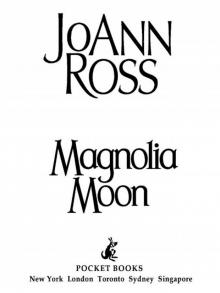 Magnolia Moon
Magnolia Moon Summer on Mirror Lake
Summer on Mirror Lake Blue Bayou
Blue Bayou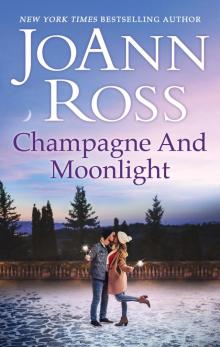 Champagne and Moonlight
Champagne and Moonlight No Regrets
No Regrets Long Road Home
Long Road Home Southern Comforts
Southern Comforts Herons Landing
Herons Landing Untamed
Untamed No Regrets (Mira Romance)
No Regrets (Mira Romance)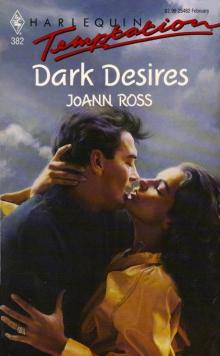 Dark Desires
Dark Desires Wanted!
Wanted! River Road
River Road Midnight Runaway
Midnight Runaway The Long Way Back
The Long Way Back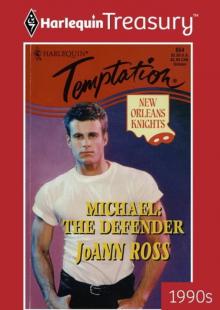 Michael: The Defender
Michael: The Defender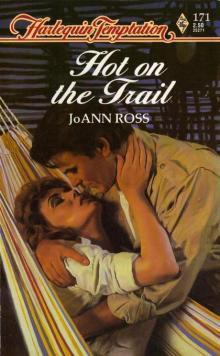 Hot on the Trail
Hot on the Trail When I'm With You
When I'm With You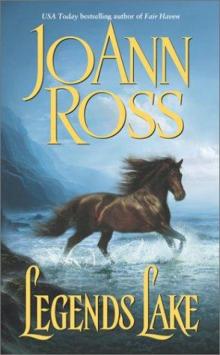 Legends Lake
Legends Lake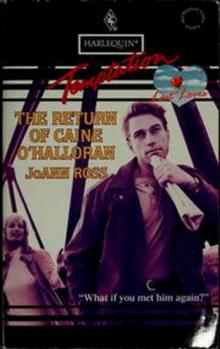 The Return of Caine O'Halloran
The Return of Caine O'Halloran Dance with a Dynasty
Dance with a Dynasty MacKenzie's Woman
MacKenzie's Woman Impulse
Impulse Sunset Point: A Shelter Bay Novel
Sunset Point: A Shelter Bay Novel You Again: A Shelter Bay novella (Shelter Bay series Book 8)
You Again: A Shelter Bay novella (Shelter Bay series Book 8)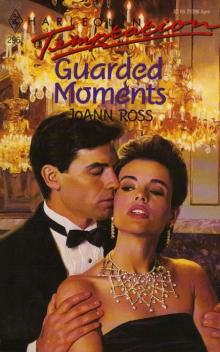 Guarded Moments
Guarded Moments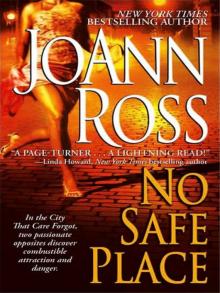 No Safe Place
No Safe Place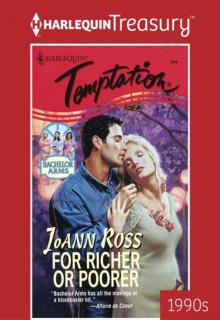 For Richer or Poorer
For Richer or Poorer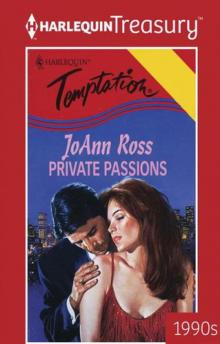 Private Passions
Private Passions Once Upon a Wedding
Once Upon a Wedding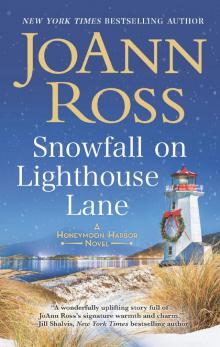 Snowfall on Lighthouse Lane
Snowfall on Lighthouse Lane Christmas on Main Street
Christmas on Main Street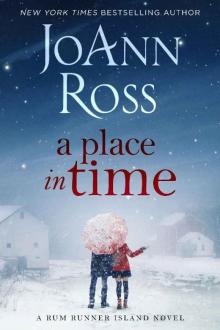 A Place in Time (Rum Runner Island Book 1)
A Place in Time (Rum Runner Island Book 1) Leaving Blue Bayou
Leaving Blue Bayou The Return of Caine O'Halloran: Hard Choices
The Return of Caine O'Halloran: Hard Choices Lucky in Love
Lucky in Love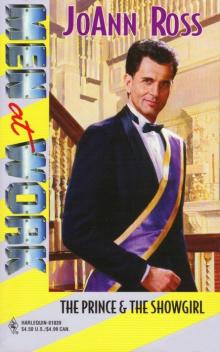 The Prince & The Showgirl
The Prince & The Showgirl Castaway Cove
Castaway Cove A Woman's Heart
A Woman's Heart One Summer
One Summer Ambushed
Ambushed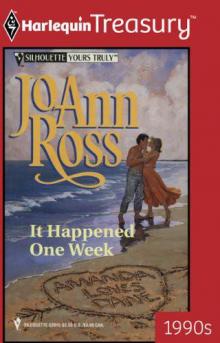 It Happened One Week
It Happened One Week Home by the Sea
Home by the Sea Three Grooms and a Wedding
Three Grooms and a Wedding Hunk of the Month
Hunk of the Month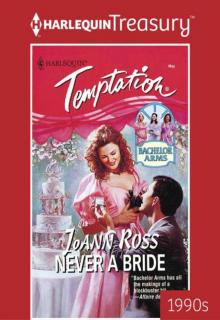 Never a Bride
Never a Bride Sun Kissed
Sun Kissed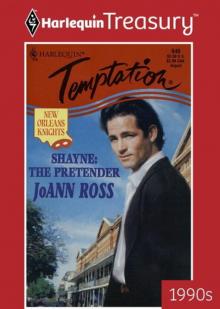 Shayne: The Pretender
Shayne: The Pretender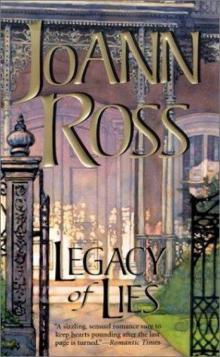 Legacy of Lies
Legacy of Lies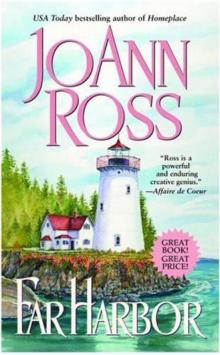 Far Harbor
Far Harbor Finn
Finn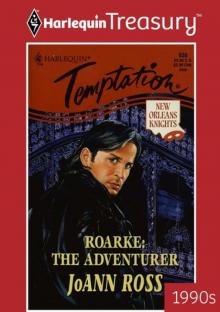 Roarke: The Adventurer
Roarke: The Adventurer I Do, I Do...For Now (Harlequin Love and Laugher)
I Do, I Do...For Now (Harlequin Love and Laugher) Briarwood Cottage
Briarwood Cottage On Lavender Lane
On Lavender Lane Sea Glass Winter
Sea Glass Winter River's Bend
River's Bend Christmas in Shelter Bay
Christmas in Shelter Bay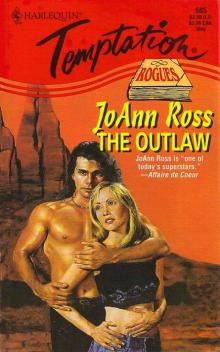 The Outlaw
The Outlaw Castaway Cove (2013)
Castaway Cove (2013)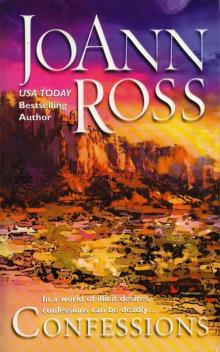 Confessions
Confessions Moonshell Beach: A Shelter Bay Novel
Moonshell Beach: A Shelter Bay Novel